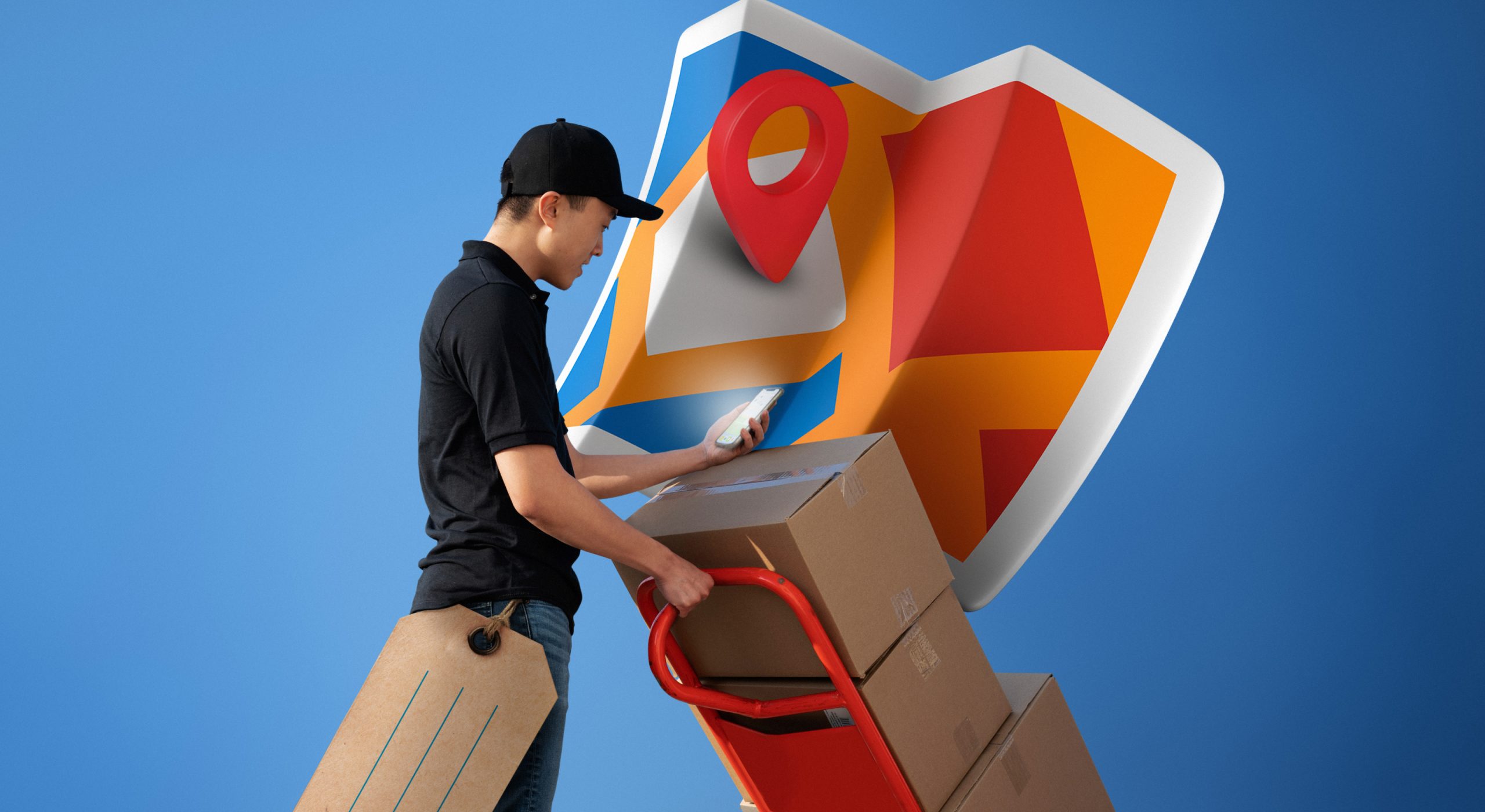Here’s a random question: Do you think having a famous brand ambassador will speed up your ecommerce success?
Alibaba thinks so, as it named soccer star David Beckham its global ambassador. Looks like the Chinese ecommerce giant is now eyeing U.S. consumers, low-key declaring war with U.S.-grown retailers.
But that’s not the juicy part of our today’s lineup. You know what comes after the appetizer—the main course.
- Walmart and Amazon’s delivery war 🪖
- A FREE way to manage your Amazon accounting 🧮
- Reselling on Amazon ♻️
- Amazon’s expanded logistics service 🚛

ECOMMERCE NEWS
Walmart is determined to keep the retail showdown with Amazon going by upping its delivery game.
According to Industry Dive, Walmart delivered 4.4 billion items with same-day or next-day shipping across the U.S.! ⚡
That’s not all—20% of these items reached customers in under 3 hours! Now, that's giving Amazon a serious run for its money.
How did Walmart pull this off?
CEO Doug McMillon couldn't hide his excitement during a recent earnings call and spilled the beans on what they did.
- Boost delivery efficiency. Faster delivery speed attracted more shoppers, leading to more sales. The surge in sales prompted Walmart to pack more items into each delivery route, slashing net delivery costs per order by 40% in the U.S.
- Internationally, Walmart is also picking up the pace. Same-day orders in India surged over 150%. In China, 55 million orders were delivered in 1 hour. 💨
- Stores as strategic assets. By leveraging their more than 4,600 stores in the U.S., they've managed to reduce delivery time and costs over time. They're even adding parcel stations to stores to streamline last-mile delivery.
🆚 A tale of two strategies
When you compare these figures to Amazon’s 4 billion same-day or next-day U.S. deliveries in 2023, it's clear both giants are neck-and-neck. But they’re taking different paths to get there.
- Walmart taps into its vast network of physical stores for these speedy deliveries.
- In contrast, Amazon focuses on optimizing its fulfillment network, given its lack of physical stores.
For sure, this battle between retail titans is far from over. So buckle up, as it’s only getting more exciting.

TOGETHER WITH UNLOOP
A FREE way to manage your Amazon accounting

The road to making money on Amazon is full of sharp turns. For instance, you'd have to navigate around accounting challenges standing between you and a smooth-sailing cash flow.
Unloop knows how exhausting managing your books can get. That's why they devised Unloop Connect—a self-serve app that'll help you brave endless Amazon transactions with ease.
🔢 What can Unloop Connect do?
The main charm of Unloop Connect lies in its ability to automate your accounting process. But aside from this, you can squeeze 4 amazing benefits out of this app:
- Streamline your transactions by connecting Amazon to QuickBooks Online and letting the app categorize them for you.
- Monitor how much you're making and spending with organized profit and loss reports.
- Show off your finances to potential investors with confidence.
- Complete your bookkeeping conveniently with its easy-to-use interface.
Why should you choose Unloop?
First off, its app is FREE! Who doesn't want an extra hand with crunching numbers without the extra costs?
But if you want a more premium experience, they also offer comprehensive accounting services. You'd have to shed a few dollars, but their team of experts will make it all worth it. They're more than willing to handle your books if the free app seems overwhelming. 🤝
Ready to transform your Amazon accounting journey? Get started with Unloop today and book a 30-minute discovery call!

BITES OF THE WEEK
- Memorial Day Deals: The memorial celebration continues with extended Amazon deals and sales.
- AI Talks: AI is powering conversational commerce, consequently helping Indian businesses grow.
- Commerce Fusion: Shopping becomes an interactive adventure when social media and ecommerce mix.

TRENDING TOPIC
Should you start selling used items on Amazon?

Recommerce, or the sale of secondhand goods, is more than just a trend. According to Ebay’s new Recommerce Report, it’s now a lifestyle choice—to shop in a smart, sustainable manner.
🌱 Here are other interesting findings in the report:
Why do people love preloved?
According to 28,000 global consumers, sellers, and buyers, the top reasons are:
- Saving money (62%)
- Helping the environment (26%)
- Finding hard-to-get items (25%)
- Buying affordable brands (24%)
- Hunting for unique finds (18%)
Who buys preloved goods the most?
- Young people love secondhand shopping, with 24% of millennials and 21% of Gen Z buying secondhand items every month. 🗓️
- But it’s not just the young—59% of people of all ages bought secondhand items in 2023.
What are the top items?
The most popular secondhand items are:
- Clothes (48%)
- Books (34%)
- Shoes (24%)
- Home and garden items (23%)
- Tech and electronics (22%)
💕 Should you give preloved some lovin’?
Well, it’s definitely worth considering. By selling secondhand goods, you’ll help the environment AND attract buyers looking for unique and affordable finds.
But as always, weigh up the good and the not-so-good before you go all in.

SELLER REFRESHER
Amazon expands logistics service to defend ecommerce crown

ICYDK, Amazon’s logistics expansion plans ceased post-pandemic to adjust to new normal practices. But now, the ecommerce giant is putting the pedal to the metal for a grand logistics comeback.
EcommerceBytes consolidates reports documenting how the retailer plans to fend off competitors.
🚚 The grand strategies
- Quick expansion: For this year alone, Amazon has signed at least 6 new leases in the western part of the country. Amazon currently operates in 413 million square feet of industrial real estate, and it plans to expand by another 16 million square feet.
- Decentralization: Amazon is now split into 9 regions from the previous 8 regions. FBA sellers are required to store inventory across multiple locations. 🌍
- Many small stations. Amazon is investing in communities, including small towns and rural areas. Strategically scattered fulfillment centers minimize final-mile transportation costs.
Amazon’s fulfillment network facilities are further divided into:
- Sortable fulfillment center
- Non-sortable fulfillment
- Sortation centers
- Receive centers
- Delivery stations
- Special stations
Go big or go home
Amazon’s decision to decentralize and expand is mainly due to the big moves of its competitors. The equally big Walmart is utilizing its existing physical stores for order fulfillment. Smaller rivals Temu and Shein are also putting pressure on ecommerce in general (but can’t compete in terms of fulfillment yet).
Needless to say, Amazon is determined to cling to its reputation as the ecommerce king. 👑








